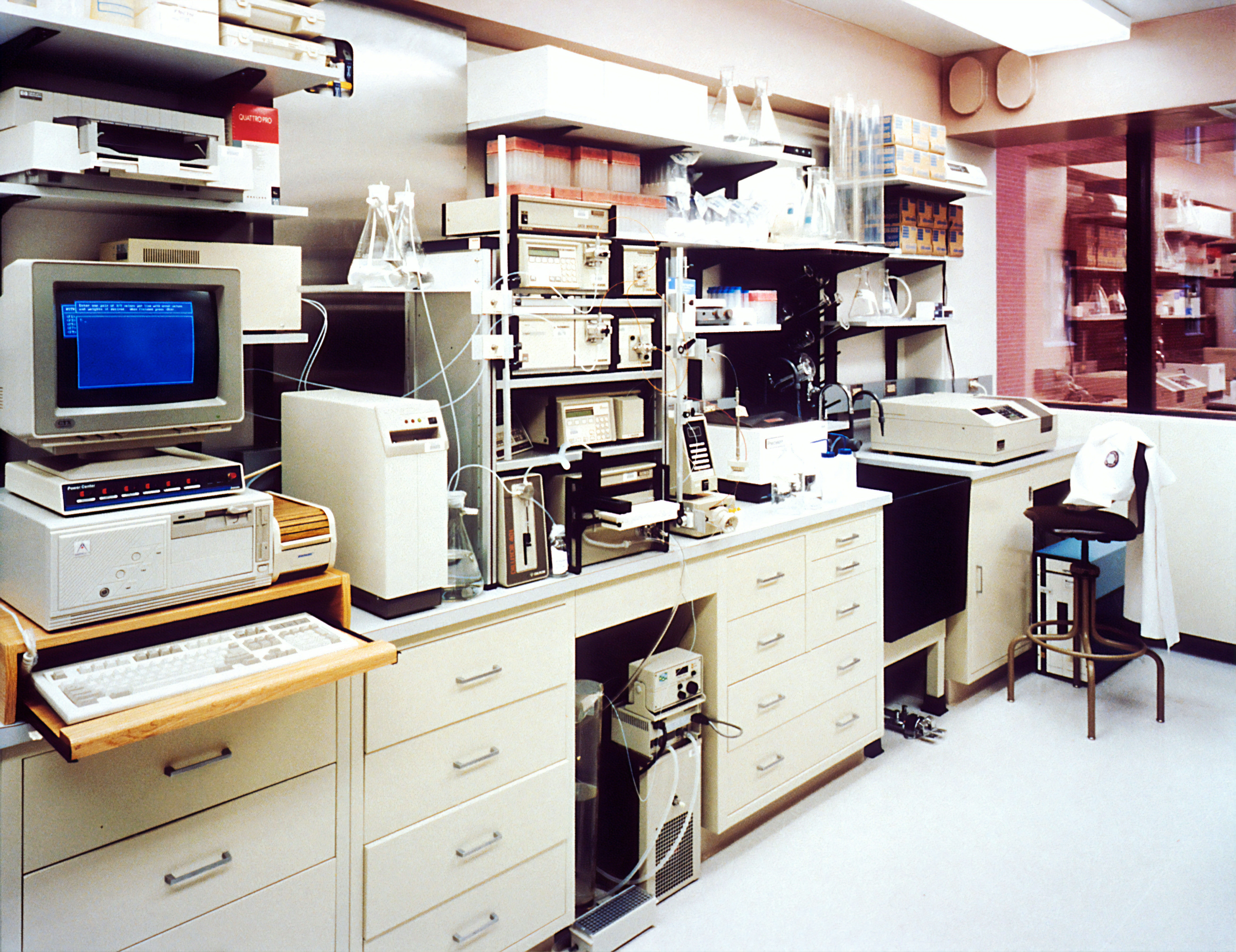Insights
The Synergy Between Regulatory Affairs & Clinical Data Management
28 Oct, 20249 minsClinical data management has traditionally focused on the collection, processing, and manage...

Clinical data management has traditionally focused on the collection, processing, and management of data from clinical research. However, as technology advances and big data continues to expand, the role of clinical data management is evolving. New regulations and heightened scrutiny, especially around biometric data, are reshaping how organizations handle data in clinical trials and research.
Today, regulatory affairs teams are not the only ones who ensure compliance—clinical data managers are playing an increasingly vital role in maintaining data integrity and meeting regulatory standards.
This guide explores the critical intersection between regulatory affairs and clinical data management, focusing on biometric data, and highlights how growing regulations drive the demand for skilled professionals in both fields. We will examine how these teams work together to navigate the complexities of data management and regulatory compliance in life sciences.
Expanding Regulations are Shaping Clinical Data Management
Clinical data management regulations have become stricter in recent years, driven by several factors. Technological advancements have resulted in larger data volumes and increased complexity, while the global expansion of clinical research has created the need for more harmonized regulatory standards.
Growing concerns over data privacy and security—particularly with the use of biometric data—have led to stricter protections, and increased public scrutiny of clinical research has pushed for more transparency and accountability.
As these regulations become more stringent, they reshape how organizations across the life sciences industry handle clinical and biometric data. Maintaining compliance is now essential, as organizations must protect sensitive information and ensure the integrity of their research processes.
Let's explore how these regulations impact key clinical data management areas.
Stricter Data Privacy Standards
Regulations like HIPAA and GDPR, along with state-level laws such as the CCPA, impose stricter personal and biometric data controls. Companies must implement strong security measures, including encryption and restricted access, to meet these requirements. As data privacy standards tighten, the pressure to manage data securely and accurately only increases.
Enhanced Data Integrity Requirements
Laws like 21 CFR Part 11 emphasize the need for data accuracy and traceability. This means that every piece of data, particularly biometric data, must be carefully documented. Businesses handling clinical data are now required to maintain rigorous internal practices to ensure data integrity and compliance.
Real-Time Data Monitoring and Reporting
Regulators are demanding quicker access to data. For organizations managing biometric data, systems must be capable of tracking and resolving discrepancies in real-time. Effective internal processes for monitoring and reporting are now essential for staying compliant.
Standardization of Data Formats
Standardized formats like CDISC are critical for data sharing across regions. Organizations need to ensure their data is appropriately structured to meet global standards. This shift toward standardization increases the importance of robust internal data management practices.
Increased Accountability and Oversight
With regulations tightening, accountability has become more crucial than ever. Companies must ensure their data management systems are validated and that all procedures meet regulatory standards. As oversight grows, so does the need for organizations to adopt a more thorough approach to managing and securing clinical and biometric data internally.
Though these regulations have prompted most organizations to focus on building out their regulatory affairs teams, which is incredibly important, the majority of these new laws are centered around how data is managed internally. This shift places a growing emphasis on clinical data management, as organizations need to ensure their data practices meet stringent compliance standards.
To learn more about the effects of emerging and upcoming privacy regulations at both federal and state levels on clinical data management, explore our comprehensive report: Clinical Data Explosion Meets Privacy Laws: What You Need to Know.

The Role of Clinical Data Managers in Regulatory Compliance
The growing regulations at both federal and state levels regarding data privacy, along with rules surrounding best clinical practices, put significant pressure on how clinical and biometric data is managed.
The demand for skilled clinical data management professionals is rising, with a projected 35% growth in data scientist roles through 2032. These experts are essential for pharmaceutical companies, CROs, biotechnology firms, and the broader life science industry as they tackle the challenges of regulatory compliance.
What do clinical data managers do to support compliance and maintain the integrity of clinical trials? Here are some key responsibilities:
- They validate and clean data thoroughly. This ensures that the information is accurate and complete, which is vital for producing results that regulators can trust.
- Developing and maintaining data standards and security measures is also a big part of their role. Protecting patient information while meeting regulations like GDPR and HIPAA is a top priority.
- When it comes to regulatory submissions, clinical data managers excel at preparing structured data for eCTD submissions. Their efforts make sure that everything is organized and ready for review, helping to streamline the approval process.
- Keeping detailed records of data changes and user activities promotes transparency and provides solid evidence during audits. This is essential when regulatory agencies require proof of compliance.
- They also identify potential risks in data handling. Assessing these risks and finding ways to minimize them is key to ensuring data integrity throughout the trial process.
- Once the data is collected, they conduct data analysis to evaluate the safety and efficacy of investigational products. Their insights are critical for creating regulatory reports that effectively communicate findings.
Collaboration Between Regulatory Affairs and Data Management
In the life sciences industry, the connection between clinical data management and regulatory affairs teams is more important than ever, especially as regulations regarding biometric data become more specific at both state and federal levels. Their collaboration is vital for navigating compliance and ensuring the integrity of clinical trial data.
Right now, there’s a pressing need for these teams to align their efforts in defining the types of data required for regulatory submissions. Regulatory affairs professionals play a significant role in guiding clinical data managers on adhering to Good Clinical Practice (GCP) guidelines. This collaboration helps ensure reliable data collection.
Clinical data management jobs at all levels—from Clinical Data Managers and Senior Data Managers to Directors of Data Management—are pivotal in this process. Each role brings unique expertise that supports effective data handling and regulatory compliance.
Here’s how these teams already intertwine in their work:
- Ensuring Data Integrity and Quality: Both teams focus on maintaining accurate and consistent data through rigorous validation and cleaning processes. This includes developing data standards and implementing quality checks to uphold high standards throughout the clinical trial.
- Streamlining Regulatory Submissions: The teams collaborate closely to prepare data in compliance with eCTD standards. By extracting relevant data and ensuring it meets regulatory requirements, they facilitate timely submissions.
- Risk Management and Compliance: Together, they assess risks associated with data collection and management. This partnership helps implement measures that safeguard patient data privacy, aligning with regulations like GDPR and HIPAA while maintaining detailed audit trails for compliance.
- Data Analysis and Reporting: Clinical data management teams conduct statistical analyses that inform regulatory reporting. By preparing reports that summarize study findings, they demonstrate adherence to regulatory requirements.
As regulations continue to evolve, the need for collaboration remains crucial. Both clinical data management and regulatory affairs teams must work effectively together to tackle these challenges. Their combined efforts are key to developing safe and effective treatments with the help of biometrics.

Growing Demand for Clinical Data Professionals
As the life sciences industry continues to expand, so too does the demand for skilled professionals in clinical data management. With regulatory affairs driving much of the focus, the growing number of clinical trials, increasing complexity of biometric data, and tighter data compliance regulations all point to one thing: the need for talented teams that can manage this data effectively.
Clinical data management professionals, particularly those with expertise in biometrics, will be at the forefront of maintaining data integrity and regulatory compliance. Without these specialists, the ability to meet regulatory standards—whether at the federal or state level—will become an uphill battle.
The need for precision, efficiency, and collaboration between regulatory affairs and clinical data management teams is essential to ensure success in clinical trials.
To stay competitive, organizations should focus on:
- Building Specialized Teams: Invest in recruitment for clinical data management jobs that require niche skills like data governance, biometrics, and compliance expertise.
- Emphasizing Collaboration: Support closer collaboration between clinical data managers and regulatory affairs teams will ensure data privacy and compliance are always prioritized.
- Continuous Development: Offer opportunities for ongoing learning to help teams stay ahead of regulatory changes and advancements in data technologies.
The future of the life science industry is heavily tied to how well your organization can adapt to evolving regulatory standards and manage the complexities of biometric data. Prioritizing the recruitment of skilled clinical data managers is the key to ensuring that your data—and your business—stays compliant and ahead of the curve.
The Future of Clinical Data Management: Final Thoughts
As regulations around biometric data tighten, the role of clinical data management has become increasingly important. With more stringent data privacy laws and more significant data volumes, skilled professionals are essential to ensure compliance and maintain the integrity of clinical trials. Close collaboration between regulatory affairs and data management teams is vital for meeting these demands.
The demand for experienced clinical data managers is on the rise. Organizations should focus on building strong teams equipped to handle the complexities of data compliance. By prioritizing recruitment, encouraging teamwork, and supporting ongoing development, your organization can remain competitive in the life sciences industry.
Are You Ready to Recruit Exceptional Biometrics and Data Experts?
At Warman O’Brien, our expert team specializes in biometrics and clinical data management recruitment, bringing in-depth industry knowledge to help you find the right professionals.
We work with life science, research, and pharmaceutical organizations to ensure you have the skilled individuals needed to manage data compliance and integrity effectively. Whether you're hiring for clinical or non-clinical data management roles, our tailored recruitment process ensures a smooth and successful outcome.
Contact us today to learn how we can support your biometric recruitment needs.
Article Reference List
Arellano, A.M., Dai, W., Wang, S., Jiang, X. and Ohno-Machado, L. (2018). Privacy Policy and Technology in Biomedical Data Science. Annual review of biomedical data science, [online] 1, pp.115–129. doi:https://doi.org/10.1146/annurev-biodatasci-080917-013416.
Banach, M.A., Fendt, K.H., Proeve, J., Plummer, D., Qureshi, S. and Limaye, N. (2022). Clinical Data Management in the United States Where We Have Been and Where We Are Going. Journal of the Society for Clinical Data Management, 1(3). doi:https://doi.org/10.47912/jscdm.61.
Chisholm, O. and Critchley, H. (2023). Future directions in regulatory affairs. Frontiers in Medicine, [online] 9. doi:https://doi.org/10.3389/fmed.2022.1082384.
Kearney, S.J., Lowe, A., Lennerz, J.K., Parwani, A.V., Bui, M.M., Wack, K., Giannini, G. and Abels, E. (2021). Bridging the Gap: The Critical Role of Regulatory Affairs and Clinical Affairs in the Total Product Life Cycle of Pathology Imaging Devices and Software. Policy and Practice Reviews, 8. doi:https://doi.org/10.3389/fmed.2021.765385.
Krishnankutty, B., Naveen Kumar, B., Moodahadu, L. and Bellary, S. (2012). Data management in clinical research: An overview. Indian Journal of Pharmacology, [online] 44(2), p.168. doi:https://doi.org/10.4103/0253-7613.93842.
Medicines and Healthcare products Regulatory Agency (2014). Good clinical practice for clinical trials. [online] GOV.UK. Available at: https://www.gov.uk/guidance/good-clinical-practice-for-clinical-trials.
Schiller, J. (2021). Biometrics Regulations: Navigating US Biometric Laws | Insights & Resources | Goodwin Procter. [online] www.goodwinlaw.com. Available at: https://www.goodwinlaw.com/en/insights/blogs/2021/11/biometrics-regulations-navigating-us-biometric-law.
Shortino, V. (2023). The Pivotal Role of Clinical Trial Manager in Clinical Research. [online] www.precisionformedicine.com. Available at: https://www.precisionformedicine.com/blog/inside-a-cro-the-pivotal-role-of-clinical-trial-manager-in-clinical-research/.
Tsukayama, H. (2022). Trends in biometric information regulation in the USA. [online] www.adalovelaceinstitute.org. Available at: https://www.adalovelaceinstitute.org/blog/biometrics-regulation-usa/.



